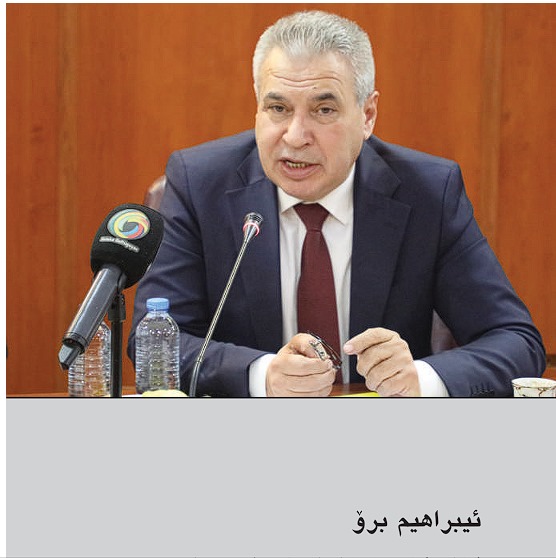By Ibrahim Bero *
Currently, within the small geographic territory of Syria, various factions with conflicting and overlapping interests coexist. On Syrian soil, we find the continued presence of major global powers like the United States and Russia, as well as regional powers such as Iran and Turkey. Additionally, Israel’s forces maintain a persistent presence in Syrian airspace. This situation underscores the reality that two major international powers (the United States and Russia) and three regional forces (Turkey, Iran, and Israel) are actively engaged in proxy battles on Syrian soil.
The international community, due to differences in perspectives and approaches toward the Syrian dossier, has failed to manage Syria’s crises effectively. This failure implies a need for the international community to assume responsibility for the situation, which has deteriorated since the fall of the regime.
The role of Arab states in mitigating Syria’s catastrophe has been weak. In recent efforts, they have pursued two primary objectives:
- Removing the Assad regime’s ties with Iran.
- Establishing boundaries to curb the production and export of the drug “Captagon” by the Syrian regime.
However, Arab states have neither succeeded in distancing the Assad regime from Iran nor managed to enforce limits on the spread of Captagon or compel Syria to halt its exports.
Amid this precarious situation, figures like Ahmad Shar’a or Abu Muhammad al-Jolani have assumed power. This development has raised serious concerns across Syria’s diverse components—not only among Kurds and Alawites but also Christians, Druze, and even Sunni Arabs.
Presently, Syria represents a “ticking time bomb,” particularly with the potential resurgence of ISIS terrorists. Thousands of ISIS-affiliated detainees are held in facilities such as al-Hol and Roj camps and prisons in Ghwayran and Qamishli.
The U.S. administration might change in the coming months, with Donald Trump returning to the presidency. This would signify a significant shift, raising questions about whether the new U.S. administration will address the issue of ISIS militants in Syria. This includes whether Iraq and European countries will be forced to repatriate their nationals who are ISIS affiliates.
Another critical and unresolved issue is the tension between Turkey and the Syrian Democratic Forces (SDF). Over recent years, Turkey has consistently attempted to launch offensives against Rojava (northeast Syria). Turkey justifies its aggression by pointing to the PKK’s presence in the region. To this end, Turkey has aggressively lobbied the U.S. and European states, arguing: “You traveled thousands of kilometers to fight terrorism and protect your countries from its threats, yet this organization (the PKK) operates along our borders, and you label it a terrorist group yourselves.”
The SDF must approach this reality pragmatically, acknowledging the transformative shifts unfolding in the region. Furthermore, Turkey’s insistence that the PKK’s presence in Rojava justifies its actions must be addressed carefully and strategically by the SDF.
Previously, the Assad regime allowed Iranian forces and Hezbollah to operate freely within Syria. In response, the Syrian Democratic Forces might receive assurances from the U.S. to not obey American forces to remove PKK fighters from Rojava. However, the current circumstances require the SDF and PYD leadership to unequivocally and effectively distance themselves from the PKK—actions, not just words. Similarly, the international coalition must demand the withdrawal of all foreign forces from Syrian soil. If this does not happen, the Kurdish regions of Syria will face significant risks, as the SDF cannot independently manage major transformations.
Figures like Ahmad Shar’a (or Abu Muhammad al-Jolani), who was once a leader within al-Qaeda before heading Jabhat al-Nusra and later Hay’at Tahrir al-Sham (HTS), have demonstrated the ability to adapt and rebrand themselves. However, the SDF has displayed rigidity, which could prove detrimental.
This stage is very critical if it is directly supervised by the United Nations, but if the current authority continues to govern Syria in the same manner, it may gain approval for its approach temporarily but cannot sustain this model in the long run.
Syria is a state of great ethnic and religious diversity. This definition has been emphasized in all documents of the Syrian opposition. While the previous regime insisted on the slogan “one party, one leader, one people,” all Syrian opposition documents, particularly the second Riyadh Declaration in 2017, have highlighted that “Syria is a multicultural and multi-religious state, consisting of Kurds, Arabs, Syriacs, Assyrians, Turkmens, and all other diverse groups. The Syrian constitution must ensure the protection of all these rights.”
* Member of the National Council of Kurds in Syria

